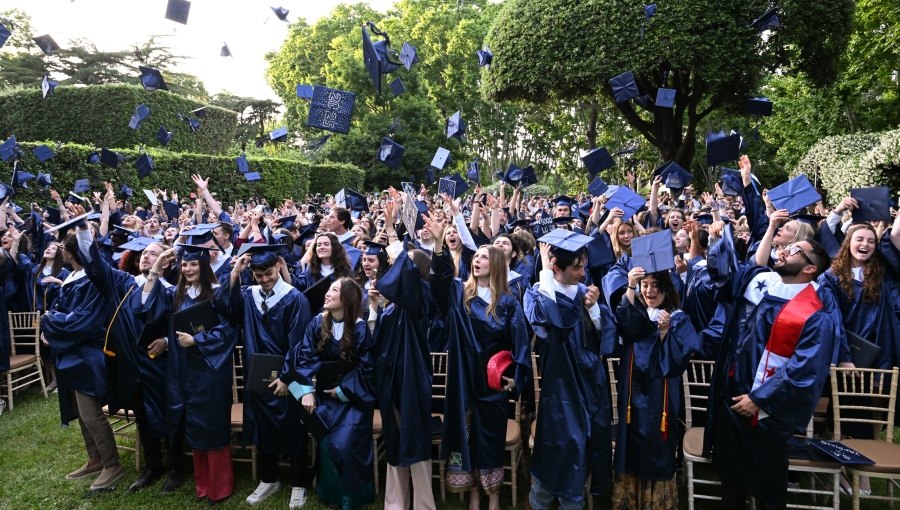ARTSPEAKS Series Kicks Off with Lecture by Donatella Saroli of MAXXI
On September 21, the John Cabot University Department of Art History, with the support of the Vanessa Somers Art Project, launched ARTSPEAKS, an open lecture series bringing leading academics, curators, artists, and other cultural professionals to JCU and the wider Roman community.

Dr. Donatella Saroli, Curatorial Researcher at Rome’s MAXXI National Museum of 21st Century Arts, drew an audience of nearly eighty students, faculty, and staff, in addition to Trustees and JCU President Franco Pavoncello. Her talk “Training One’s Imagination to Go Visiting: Artists, Institutions, and Curious Practices,” presented aspects of her research into the visual arts as informed by spatial politics, multi-species entanglements and feminist theory.
How can the concept of “visiting” help us to rethink cultural practices? Drawing from Hannah Arendt’s Lectures on Kant’s Political Philosophy, Dr. Saroli presented “visiting” as a disposition open to otherness, within a critical framework of embodied knowledge. “Visiting” suggests an individual disposition within dynamic social relations that eschews thinking on one’s own terms in another’s environment. “Visiting” does not presume knowledge of otherness, or rely on mere empathy, but aims to foster mutual discovery, and understanding. What “visiting” requires is a curious practice, as Vincianne Despret’s work on animal studies and observer-observant suggests, and as Donna Haraway’s thinking on multi-species entanglements further argues. For Dr. Saroli, “visiting” is indeed a curious practice: it is the cultivation of wild courtesy and curiosity. It is “politeness” understood not as antiquated rules of behavior but as a precaution against egocentric knowledge-production.
Visiting, curious practices and politeness were the central concepts defended by Dr. Saroli as protocols for advanced research and meaningful relations in the visual arts, as in culture more generally. In her capacity at MAXXI Rome and in her new responsibilities at MAXXI L’Aquila, these concepts guide her vision for what a contemporary museum could be: promoting engagement with local populations, rethinking territorial commitment, and making MAXXI L’Aquila an open laboratory to foster artistic and cultural exchange — to ask, “What if?”
The audience responded with a variety of questions, and lively conversation continued well into the very collegial reception that followed, providing students with the opportunity to meet the speaker and further imagine, together, the future of cultural institutions.
The next ARTSPEAKS lecture will take place at 6 pm on November 8 in the Aula Magna, welcoming curator, art critic, and art historian Dr. Cecilia Canziani. For more information on ARTSPEAKS, contact [email protected]
(Luca Fustagno)




